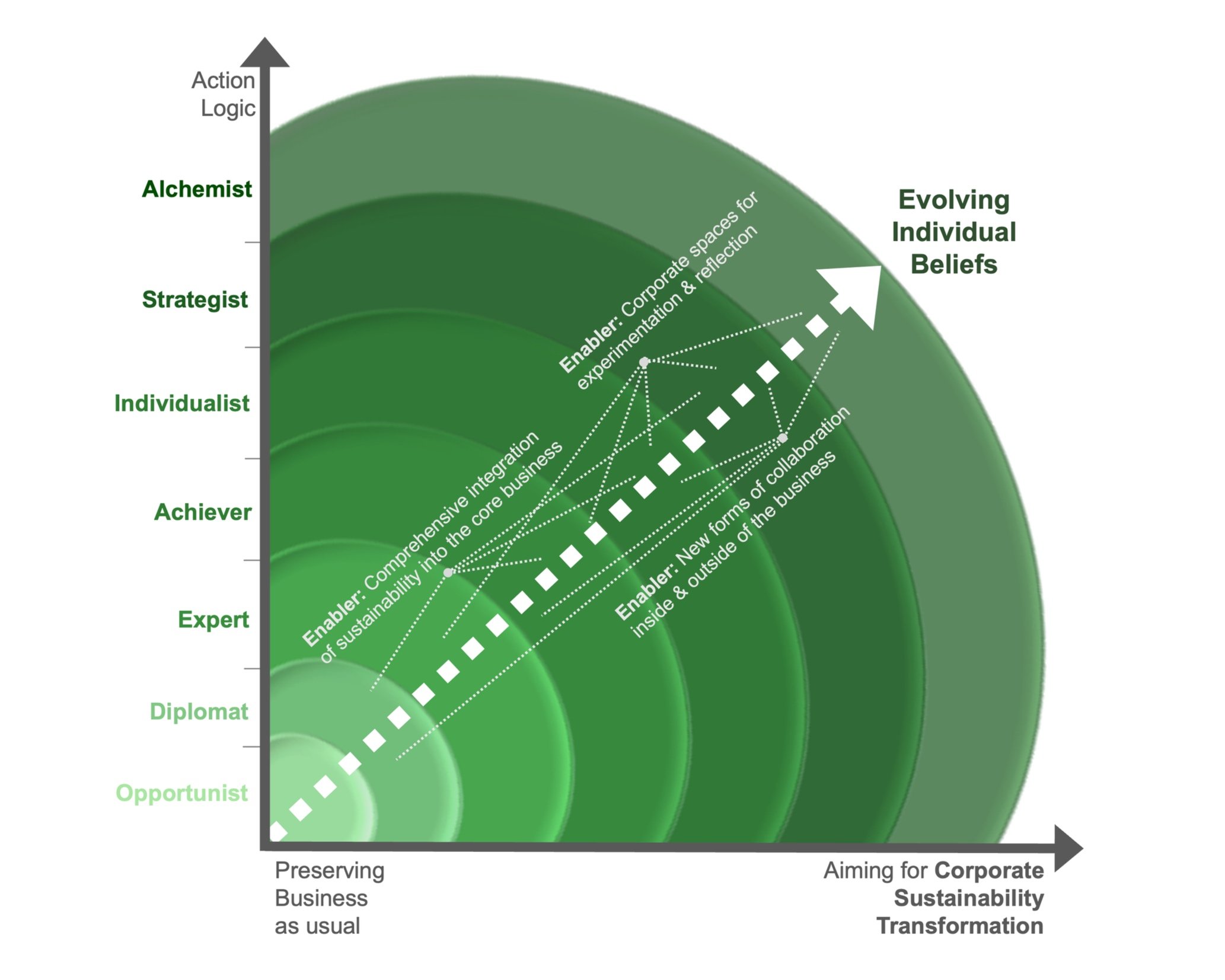Beliefs & Corporate Sustainability Transformation
..beliefs underpin individual behaviour and influence how businesses behave. This study assesses what beliefs are held by corporate sustainability managers in the German clothing industry. We show how individual beliefs are linked to the implementation challenges of moving away from business-as-usual towards corporate sustainability transformation.
When I was working as sustainability consultant with businesses in the noughties, it was openly acknowledged by us consultants that ‘We do not care about your motivation, we just care about the [sustainability] outcome of what you do within your organisation’. That sentiment did sit uneasy with me, because whilst saying this to our clients, we consultants acknowledged among ourselves that we often overdelivered in terms of our time spent. We also had a high emotional investment in the success of our projects. Why did we overdeliver and why were we emotionally invested? Because we wanted, through our work, achieve transformative sustainability outcomes and impact. So what we said to our clients contradicted what we knew to be true for ourselves.
Having reflected on this contradiction for a good few years, I am excited to have worked on a study looking at the connection between [a] the inner development of the person working within a business and [b] the challenges of corporate sustainability transformation. Maike Buhr and myself examined the personal beliefs of senior sustainability managers and how these beliefs are connected to sustainability efforts of their workplace. Our study categorises these beliefs using an action logics framework [see key terms below]: actions logics explains how different types of thinking impact decision-making. Our research found that managers with ‘Strategist‘ and ‘Alchemist’ action logics —who focus on long-term change and innovation—are most effective in driving corporate sustainability transformation.
Key terms we use in our study
The study covers 17 different fashion-manufacturing and retailing companies with their headquarters in Germany between February 2019 and May 2019, and we conducted seven follow-up interviews from November 2022 to January 2023. Our data sample includes 10 of the largest clothing companies in Germany. All companies included in the study have a combined turnover of more than 35 billion euros covering the German market and markets in other EU and non-EU countries. For comparison: the German-only clothing and textile sector has an annual turnover of about 32 billion euros [1]. The interviewees struggle with integrating sustainability into core business functions. The key challenges identified were corporate short-termism, resistance from top management, and conflicts between sustainability and profit-driven goals. The ‘Strategist’ and ‘Alchemist’ have distinct characteristics in the way they relate to and interact with people and organizations that allow addressing these key challenges effectively.
Strategist and Alchemist characteristics
Our study suggests that companies can enable individual belief development through creating an environment where sustainability managers can experiment, reflect, and collaborate more openly. Also, the creation of safe spaces for discussion and providing strategic alignment with sustainability goals can help managers develop more advanced action logics and drive sustainable change effectively.
Relationship between individual beliefs, action logics, and corporate sustainability transformation
Overall, the study highlights that individual beliefs significantly shape corporate sustainability efforts and suggests ways to better support sustainability managers in engaging in the processes needed to move away from business-as-usual towards corporate sustainability transformation.
The study is available for free read and download at the Journal of Business Ethics, the Environment & Responsibility.
[1] https://textil-mode.de/de/. The Confederation of the German Textile and Fashion Industry. Accessed March 2025. The German textile industry has an annual turnover of 32 million euros, includes 1400 companies, and employs 120000 people in Germany.


